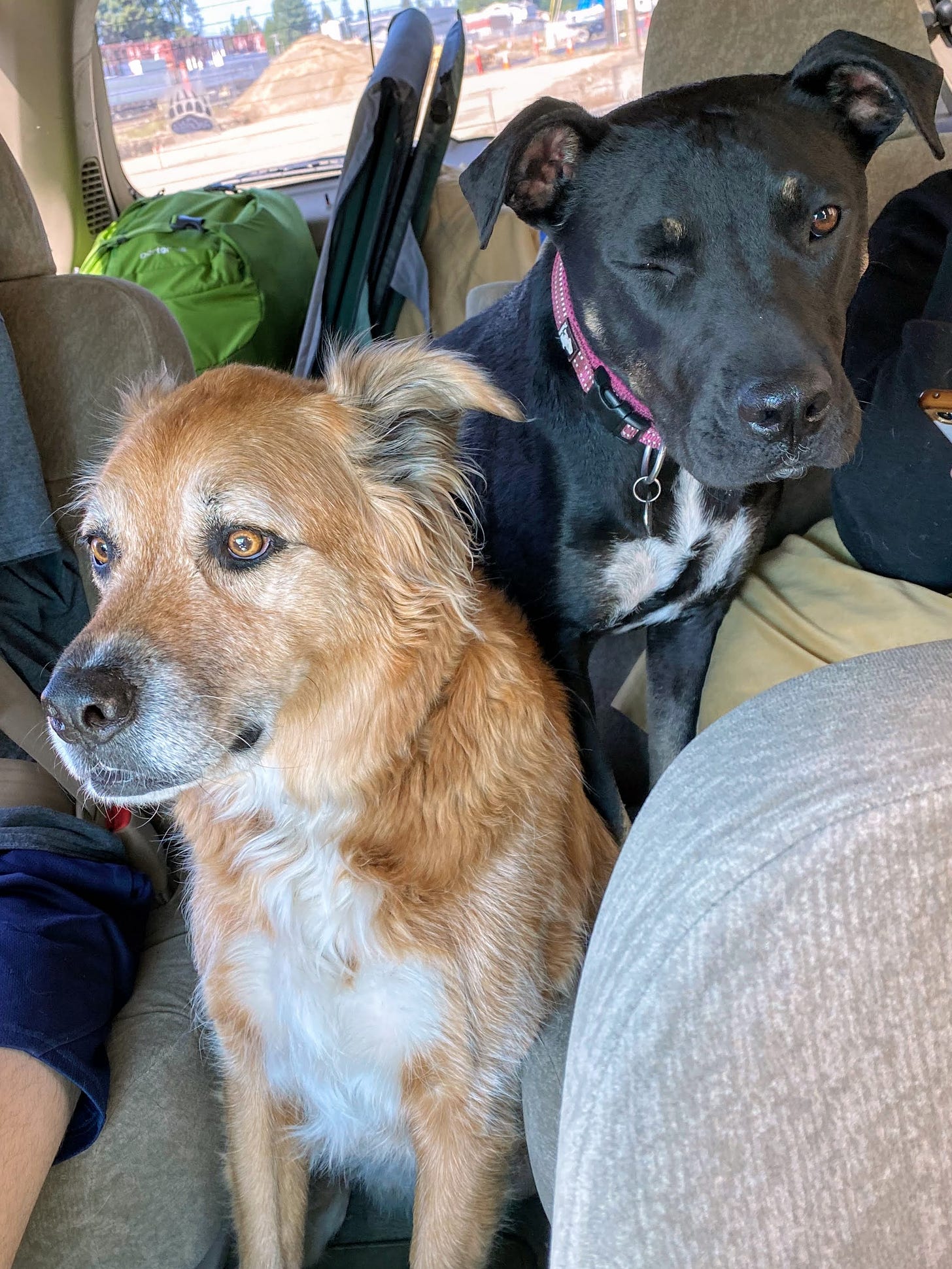On Dec. 7, 2020, one year ago, I sent out the first Volts post. At the time, I was extremely nervous. I had left behind a stable job at Vox and had no idea if a newsletter dedicated to clean energy and politics would find any readers, much less readers who would pay.
Over the last year I dug into carbon markets, transmission systems, lithium-ion batteries, and 24/7 carbon-free energy. I profiled new clean-energy legislation in Washington state, Colorado, and Illinois. There was a little philosophy and a lot of politics and policy. For the podcast, I talked to researchers, analysts, activists, and politicians.
I have reason to believe Volts has reached the corridors of power, though Joe Manchin has by all accounts remained immune to its charms.
I have a long list of topics for next year: clean-energy materials and recycling, embodied carbon, hydropower, hydrogen, and the possibilities for political progress under a dysfunctional (and possibly soon fascist) national government.
Anyway, one year in is probably too soon to draw any definitive conclusions, but from what I can tell, it’s working. I am absurdly grateful.
I try not to indulge in too much navel-gazing — mostly I keep that stuff confined to my neurotic inner monologue — but in this post I want to reflect a little bit on why I started Volts and what to expect from it in the coming year.
And I want to ask you, if you haven’t already, to sign up for a paid subscription — or, if you have a subscription already, to purchase one for someone else, perhaps as a holiday gift.
So: why did I start Volts? Two basic reasons.
Writing for my people …
One, although Vox gave me tons of latitude, there are limits to what you can do at a general-interest, ad-supported publication. You have to aim wide, to try to snare as many people as possible. Readers are likely to encounter your headline floating on Twitter or in their Facebook news feeds — you can not assume they know anything about you, your past work, or your subject matter.
So every new piece has to be an introduction. You can’t use any allusions to your previous work. You can’t reference any inside jokes. You can’t take anything for granted. (I can’t count how any times I had to explain that renewable energy is good because it reduces carbon emissions, which is good because it slows climate change, which is bad.)
And you can’t be too weird or idiosyncratic. Ultimately, though it is much more flexible than many publications, Vox needs every piece to be, at a basic level, a Vox piece. It has to represent the brand. That’s true for any publication or institution.
There’s nothing wrong with that — Vox has a great brand! If you visit, as I regularly do, you’re guaranteed to find a bunch of good Voxy pieces.
But I got tired of writing for everyone and no one in particular. I was ready to write for my people, to gather them up and take them with me so that we could learn together, follow ongoing themes and narratives, develop some in jokes, and shower the appropriate amount of love and attention on my dogs.
I’m well aware that I reached more people at Vox than I ever will at Volts. My gamble was simply that there would be enough of my people, and that they would be generous enough, that I could make a living writing for them — just them, not any “average reader” or editor or boss or publication.
I wanted to strip everything else away — the pressure to please higher-ups, the imperatives of attention-hunting in modern mass media — and focus purely on adding value, being of use.
… rather than The Man
The second reason I started Volts is that I am, at heart, a child of Gen X: I don’t want to work for The Man. I don’t want to make money for Comcast, or any giant media company, or any company at all, really. I don’t want to feel beholden to any advertiser or sponsor. I don’t want to be a representative of any faction or institution.
At Volts, I have only one incentive: to provide a service that you, my readers, find valuable enough to pay for. There’s no one here but you and me.
That feels like an honest living. It feels like something solid I can hang on to in increasingly turbulent times.
Volts survives entirely through subscriptions
I am editor-at-large for Canary Media, a relationship that allows my posts to be reprinted and reach more readers. But I live or die through paid subscriptions to Volts.
There are certain things I could do to boost my revenue that I’m not willing to do. I don’t want to put content behind a paywall — I want to be as useful as possible to as many readers as possible, even those who can’t afford a paid subscription. And I don’t want to hassle my mailing list with reminders and special offers and fundraising drives and bonus content. That stuff feels squicky to me.
But I do need to make enough money to live. And I’d like to make enough to be able to expand Volts and bring on new features and guest writers.
So I’m asking you, if you value what I do here and are in a financial position to do so, to sign up for a paid subscription or buy one for someone else.
For a year, you’ll pay about what you’d pay for one solo night out at a decent restaurant. You will get the ability to comment on posts and discussion threads, to be a part of the growing (and incredibly sharp and helpful) Volts community, but more than that, you will make it possible for me to keep doing this, to continue being of use.
I’ll do this as long as I can survive doing it. I hope it’s of service to you and you’ll support it.

















Share this post